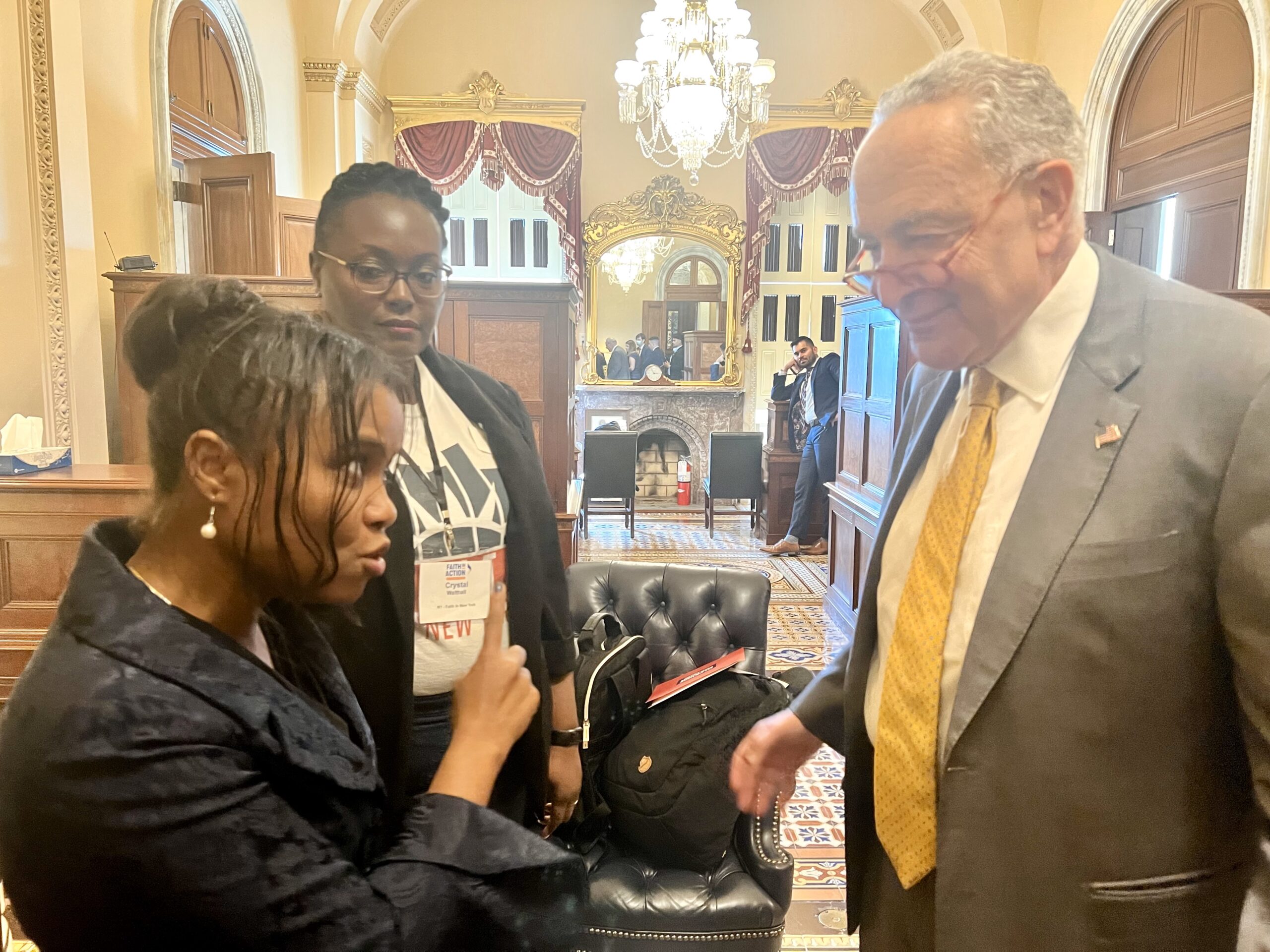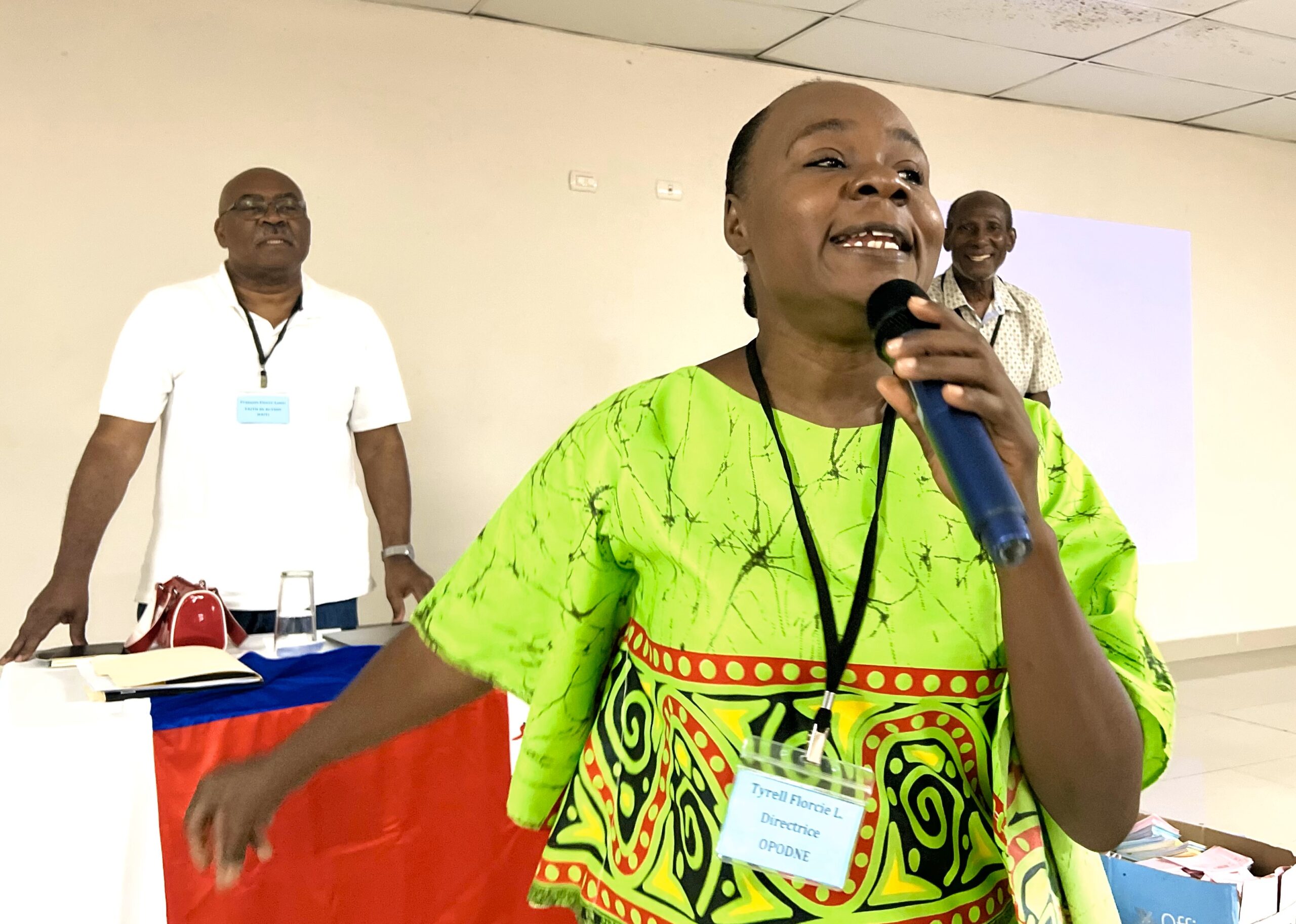“We have not been deterred by the loss of Inter-American Foundation funding for our agricultural campaign.” – Florcie Tyrell, OPODHA Executive Director In North and Northeast Haiti, Florcie Lareche…
Haiti: Haitian Diaspora Leaders Push Congress to Support Haitian-led Solutions
Seventy-five people from a dozen Haitian diaspora and faith-based organizations, including Faith in Florida, Faith in New Jersey, Faith in New York, Massachusetts Communities Action Network, Family Action Network Movement, National Haitian American Elected Officials Network, Institute for Justice and Development in Haiti, Mennonite Central Committee, Maryknoll Global Concerns, Quixote, and Unitarian Universalist Service Committee participated in a National Day of Action for Haiti on September 21. Charnette Frederic, chairperson of NHAEON, and Steven Benoît from the Montana Group joined in meetings with Majority Leader Chuck Schumer and other key Members of Congress.
Participants came from states and cities with large Haitian diaspora populations to demonstrate Haitian Americans’ political influence. They were able to meet with the offices of 33 Members of Congress, with seven face-to-face meetings with Representatives and Senators, including conversations directly with Senators Schumer, Booker, Cardin, and Markey, and senior staff for the Senate Foreign Relations Committee. Meetings included both Republican and Democratic Members of Congress, including staff for Senator Rubio (R-FL) and Reps. Diaz-Balart (R-FL), Lawler (R-NY), and Ryan (R-NY).
Each meeting focused on four concrete steps that Members of Congress can take to support the Haitian people during this crisis. These include:
- Help restore democracy in Haiti by ending U.S. support for the corrupt regime ruling Haiti and supporting a Haitian-led transition
Tell Secretary of State Antony Blinken to end U.S. support for the Henry regime and to support Haitian-led efforts to establish a transitional government actively. Henry has impeded the investigation into the assassination of Jovenel Moïse, failed to stop the spiral of violence destroying Port-au-Prince, undermined efforts by civil society and political leaders to craft a transition process to restore democracy and security, and has virtually no support from the Haitian people. - Help restore security in Haiti by passing the Haiti Criminal Collusion Transparency Act.
S. 396/H.R. 1684 requires the State Department to investigate and report on collusion between Haitian elites and violent gangs and impose sanctions on officials and private individuals supporting the gangs terrorizing Haitians. The full Senate must act on S. 396, and extraneous provisions added to H.R. 1684 must be removed. - Help fight rising hunger in Haiti by changing USAID’s approach to hunger in Haiti to support local Haitian farmers.
Over half of all Haitians face hunger due to the high cost of imported food and a decade of drought. Congress should use its appropriations, oversight, and legislative authority to change USAID’s approach to hunger and agriculture in Haiti to support small-scale farmers engaged in domestic production so that Haitians can feed themselves. An Open Letter to Congress on Haitian Food Sovereignty released this week spells out specific steps Congress can take through the Farm Bill and Appropriations process to align USAID agricultural programming in Haiti with the needs of Haitian farmers, - Halt deportations of Haitians and accelerate work permits for migrants who’ve received TPS and Humanitarian Parole.
Tell DHS and the White House to immediately stop deporting people to Haiti, given the extreme conditions in the country, and ask the Administration to accelerate the processing of work permits for Haitians who have received TPS or Humanitarian Parole and are often waiting more than a year to obtain work authorization.
Conversations with Senator Schumer and other Members of Congress brought home that legislators recognize that the current U.S. approach to Haiti is not working but have less knowledge and understanding of what a Haitian-led solution looks like. Having Steven Benoît in the room for these meetings was helpful. Still, we have more work to show that there is an alternative to supporting the failed and corrupt regime of Ariel Henry.
An important outcome of the event was to build stronger connections between organizations in Massachusetts, Florida, New Jersey, and other states. Organizations that knew of each other but had not worked closely together were able to plan joint legislative visits. One next step is for the participants from each state to meet together and develop a plan to continue engaging their congressional delegations in support of Haitian-led solutions to Haiti’s overlapping crises.



